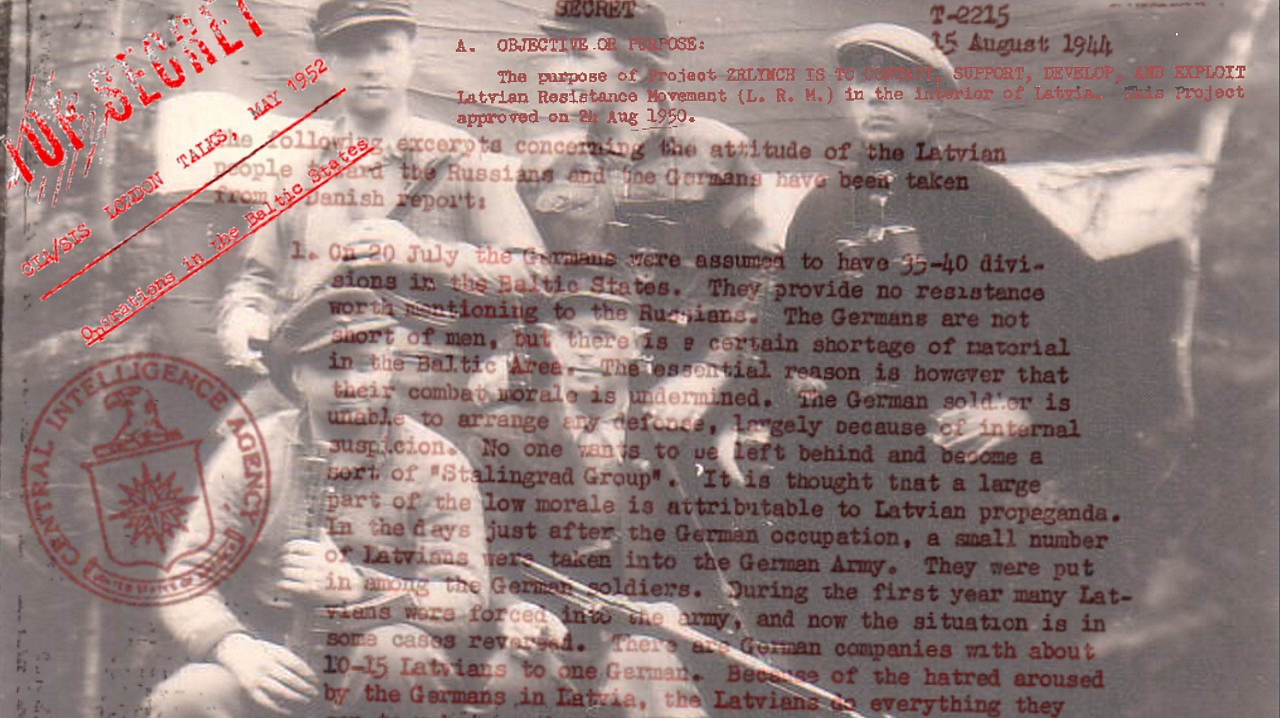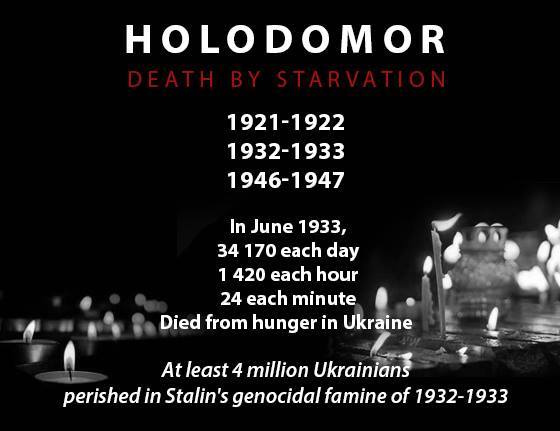Out of the ruins of the Austro-Hungarian Empire emerged Ukraine, a nation nobody expected. Equally unexpected was the Polish nobleman who dedicated his life to the creation of an independent, sovereign Ukraine and the reconciliation of Eastern and Western Christian Churches. His causes remain today as controversial as they were back in his day.
“After all convulsions that followed the disappearance of the Habsburg Empire and the violence of WWII, many relatively artificial nations were created.”Ukraine was the unexpected one. Andrei Sheptytskyi as a European and Polish nobleman and above all as a Christian spent his whole life dreaming of the Unity of East and West Christian churches. Such a unity today is a fight between moral and religious principles, between longing for humanist principles and Christian decency. To an extent, it largely characterized the long reign of the Habsburgs and the new harsh realities of the many new nations after the Habsburgs. Such an ardent fight to reconcile what cannot be reconciled not only marks Sheptytskyi’s life with heroism and tragedy, but also makes his life controversial to many. At the turn of the century, when Ruthenians (Ukrainians) in Galicia were considered by the Polish people to be uncultured peasants, in Lviv, the capital of Galicia, according to the Austrian census of 1910, which listed religion and language, 51% of the city's population were Roman Catholics, 28% Jews, and 19% belonged to the Ukrainian Greek Catholic Church. Linguistically, 86% of the city's population used the Polish language and 11% preferred the Ruthenian. Here, Sheptytskyi’s choice of all things Ukrainian, including the Ukrainian Greek Catholic Church and the Ruthenian/Ukrainian language, was considered treason, at least by Poland. We must not forget it was a time when Roman Catholic Church was a defining factor in Polish identity. Sheptytskyi’s possibly emotional rejection of his Polish roots might explain the constant battle not only against overt international enemies such as Germany and Russia (both Romanov and Soviet, mind you), but also the religious Polish resentment both inside and outside of the Vatican.

Following Sheptytskyi’s teachings and legacy, the Ukrainian Catholic University in Lviv has become not only a national, but also an international center par excellence.
Sheptytskyi and the Jews
Ukraine, today, is one of the least anti-Semitic countries in Europe. According to a 2016 report by Kharkiv Human Rights Protection Group, there was a significant drop in xenophobic violence in Ukraine, with the exception of the Russian-occupied areas in Eastern Ukraine. In January 2017, thousands of Ukrainian nationalists marched in Kyiv while celebrating the birthday of Stepan Bandera. These many participants chanted “Juden raus” ("Jews out" in German). Since 2018, the United Jewish Community of Ukraine has been systematically monitoring cases of anti-Semitism in Ukraine. In January 2019, UJCU published its first report, “Anti-Semitism in Ukraine-2018.” In that report, UJCU recognizes the existence of anti-Semitism in Ukraine, but notes its household nature. The report refers to an increase of cases of indirect anti-Semitism and vandalism. At the same time, the organization draws attention to the fact that in 2018 not a single case of physical violence was recorded due to intolerance towards Jews. Already in 1908, when a Ukrainian student murdered the Governor of Galicia, Sheptytskyi condemned the murder as “the terrible sin of politics without God.” As early as 1904, in his pastoral letter “On the Social Question,” Sheptytskyi attempted to elaborate and coordinate a Christian social program, which took into account social changes and redefined the purpose of charity: protection of the least fortunate against exploitation by defending the dignity of human labor.Sheptytskyi criticized liberal capitalism of the time because the dignity of human labor was being trampled and exploited.
Accusations of Judaizing his church, especially because he spoke to the Jewish elders in Hebrew, were prevalent in Sheptytskyi’s time.
“From the new government, we expect wise and just leadership, leadership that would take into consideration the needs and welfare of all citizens inhabiting our lands without regard to their faith, nationality or social status.”A kind of “everyone is welcome” state of mind is a very modern idea for the times, though it certainly did not go together with the ideals of Nazi Germany. Bu tSheptytskyi was a figure of supranational conviction and a religious leader striving for a reunion of Eastern and Western Christianity. He asked himself and his faithful the right questions about antisemitism in Central and Eastern Europe. He himself saved at least 150 Jews in Western Ukraine, at a time when execution followed upon capture for such deeds. The Metropolitan also promised Rabbi Lewin, that the saved Jewish children would not be baptized. In other parts of the world, the Catholic Church did not keep such promises. In 2005, Corriere della Sera published a document dated 20 November 1946 on the subject of Jewish children baptized in wartime France. The document ordered that baptized children, if orphaned, should be kept in Catholic custody and stated that the decision "has been approved by the Holy Father." The Finaly Affair kept the French public on their toes in the 1950s. It is an affair worth familiarizing with. It is unfair and illogical of Yad Vashem to refuse Andrei Sheptytskyi the title of Righteous among Nations, considering that his brother Klymentii was granted such title, for the deeds, that possibly Andrei has helped to conceive if not organize. Sheptytskyi’s name has been throughout the Soviet years, after his death in 1944, accused as a collaborator with the Nazis. Many Soviet publications of more satirical than research-based character had mudded the metropolitan’s name and retributions must be made. Historian John-Paul Himka’s article in Kyiv Post “Be Wary of Faulty Nachtigall Lessons” (2008) remembers President Yushchenko’s visit to Israel in November 2007. During the visit, Yad Vashem raised the old accusations against Nachtigall. Himka further described, how
“in the wake of Yad Vashem’s accusations, Nachtigall’s reputation was vigorously defended in the Ukrainian press by a historian of the Organization of Ukrainian Nationalists (OUN), Volodymyr Viatrovych. Using material in the public domain, he carefully traced the origin of the accusations against Nachtigall to a Soviet attempt to discredit the Adenauer government in Germany in 1959.”The State Security Service of Ukraine (SBU) citing newly declassified documents confirmed that Soviet “agentura” was behind the entire campaign and demonstrated that “agentura” had not genuine evidence of Nacthigall’s participation in the pogrom. After Viatrovych, himself, travelled to Yad Vashem and demanded to see the proof demonstrating Nachtigall’s guilt, Yad Vashem was unable to produce any. The uncritical resurrection of allegations that had already been questioned by leading scholars of the Holocaust indicates a lapse in professionalism on the part of Yad Vashem and suggests a prejudice beclouding scholarly objectivity. Certainly, this incident has not contributed positively to Yad Vashem’s efforts to promote Holocaust awareness in Ukraine. Yad Vashem should look for the truth, not decade-old accusations and this way reconsider Sheptytskyi as Righteous among Nations.
Sheptytskyi and Waffen SS Galizien
One of the controversial decisions of the Metropolitan Archbishop Sheptytskyi was his limited support to the Waffen SS Galizien.After Sheptytskyi’s death, allegations of support of Nazi causes were proactively used by the Soviet propaganda machine to discredit Sheptytskyi himself, his work and the Ukrainian Greek Catholic Church.
Freeing Ukraine from Political and Spiritual Dependency
The Roman Curia envisaged both Ukraine and the Greek Catholic Church as a bridge between Catholicism and Orthodoxy (between West and East), thus the Catholic Church would fulfill Christ’s wish of a universal church. In 1882, Pope Leo XIII entrusted the reformation of the Basilian order (Order of Saint Basil the Great, O.S.B.M.) to the Jesuits, which induced a new life into this order. Ukrainian Greek Catholic Church at the same time was under threat of being absorbed into the Russian Orthodox Church. Shortly after becoming the Metropolitan Archbishop of Lviv, Andrey Sheptytskyi derived a concept on how to reintegrate eastern religious tradition in the Ukrainian Greek Catholic Church and remove the threat of Russian Politics and Russian Orthodoxy. In 1914, on the first Sunday after the occupation of Galicia by the Russian Empire, Andrey Sheptytskyi declared in his sermon,“Ukrainian Greek Catholicism was based on religious teachings while Russian Orthodoxy was based on the power of the state.”

The ultimate Russian goal with respect to the Ukrainian Catholic Church that dominated Ukrainian religious life in Galicia was its complete annihilation.
Final Thoughts
Sheptytskyi’s strong outspoken sermons against mass killings which had happened during the WWII in Lviv and in Western Ukraine only shows that his idea of independent Ukraine was very different from that of the Nazi Germany. His sermons “Christian Mercy” and “The Ideal of National Life” describe in a very broad way the concepts of “neighbor” and “unity of humankind.” Others present killing as a sin: “May it be killing your enemy, your friend or yourself,” this way also going against interchanging the anti-Christian systems, which ruled over western Ukraine with a bloody iron fist.
 Colette Hartwich is a creator and founder of Hadassah Luxembourg, WEGA Aide Humanitaire a.s.b.l Luxembourg; Co-Founder of L’Ukraine and ALPHEE Paris. She has 40 years of experience in humanitarian and environmental assistance projects in 7 different countries all around the world: Philippines, Ukraine, Armenia among others. For more than 25 years she is educating and coaching in fields of microfinance, humanitarian and development assistance project drafting.
Colette Hartwich is a creator and founder of Hadassah Luxembourg, WEGA Aide Humanitaire a.s.b.l Luxembourg; Co-Founder of L’Ukraine and ALPHEE Paris. She has 40 years of experience in humanitarian and environmental assistance projects in 7 different countries all around the world: Philippines, Ukraine, Armenia among others. For more than 25 years she is educating and coaching in fields of microfinance, humanitarian and development assistance project drafting. - Chief Rabbi of Ukraine calls on Yad Vashem to award Metropolitan Andrei Sheptytsky title of “Righteous Among the Nations”
- Majority of Orthodox believers in Ukraine identify with Ukrainian church, new poll shows
- War is a catalyst for change, says Sviatoslav, Head of Ukrainian Greek Catholic Church
- Why Putin fears the Ukrainian Catholic Church
- The bright and dark sides of the Ukrainian Autocephalous Church




